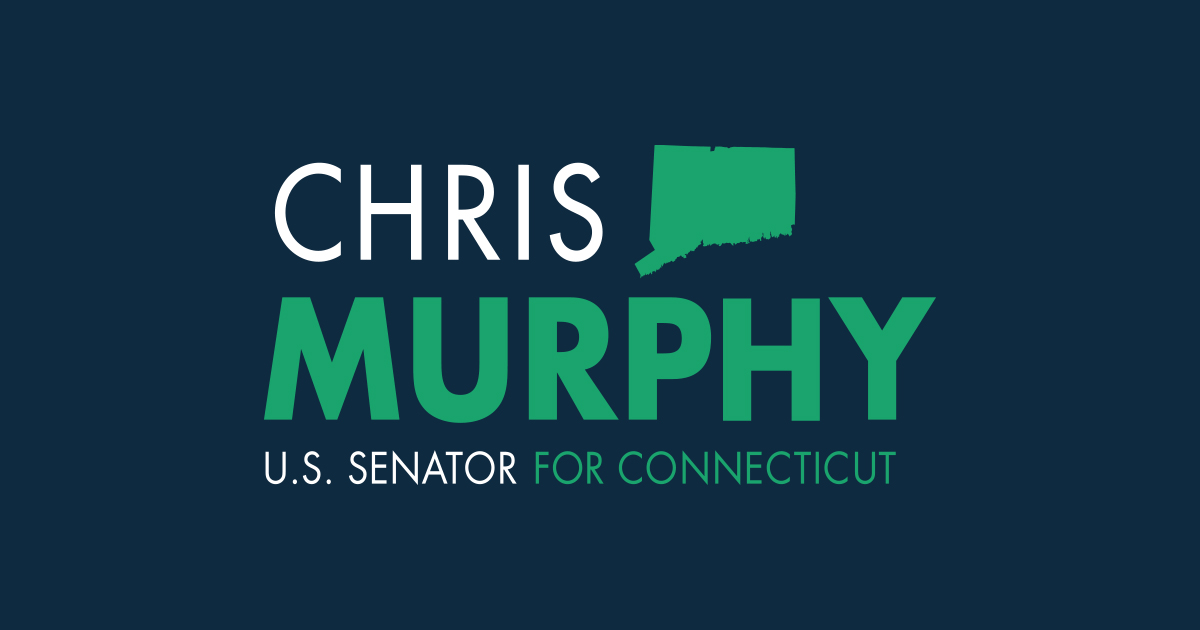Source: United States Senator for Connecticut – Chris Murphy
May 10, 2022
WASHINGTON–U.S. Senators Chris Murphy (D-Conn.) and Bill Cassidy, M.D. (R-La.), members of the U.S. Senate Health, Education, Labor and Pensions Committee, on Tuesday introduced legislation to reauthorize the historic federal mental health and substance use disorder programs that were signed into law in 2016 as part of their Mental Health Reform Act before they are set to expire in September. The Mental Health Reform Reauthorization Act of 2022 also addresses COVID-19’s devastating impact on the national mental health crisis, especially among children, by building upon the 2016 legislation to improve and expand those programs.
“The Mental Health Reform Act made important strides toward getting people the mental health care they need. But now, as we face a national mental health crisis exacerbated by two years of the pandemic, the programs we created are set to expire. That’s why our new bill goes further than just reauthorization – it doubles down on strengthening parity protections and expanding access to pediatric mental health. There’s no time to waste, and I look forward to working with the HELP Committee to make sure it’s signed into law,” said Murphy.
“We all have loved ones affected by mental illness. The pandemic intensified our mental health crisis, especially amongst our children,” said Cassidy. “Our bill preserves and improves upon the resources that have been a lifeline to so many Americans over the past five years.”
Last fall, the senators solicited feedback from patients, families, health care providers, advocacy organizations, and state, local, tribal, and territorial governments on the effectiveness of the programs created by the 2016 legislation and areas for improvement to inform the drafting of this legislation. Specifically, the Mental Health Reform Reauthorization Act of 2022 would:
Strengthen existing mental health and substance use disorder parity laws
- Authorizing $25 million to support states’ ability to enforce existing laws around mental health and substance use disorder parity;
- Preventing health insurance plans that cover frontline workers from refusing to provide parity coverage.
Improve community mental health services by:
- Authorizing a significant increase in Mental Health Services Block Grant (MHBG) funding for states to provide mental health services and promoting increased quality of programs for those with a Serious Mental Illness (SMI);
- Reauthorize HRSA’s Promoting Integration of Primary and Behavioral Health Care (PIPBHC), which places behavioral health specialists in primary care offices.
Expanding access to pediatric mental health care by:
- Promoting increased mental health care access in schools and emergency departments through HRSA’s Pediatric Mental Health Care Access Program (PMHCAP);
- Expanding training in behavioral health for pediatricians and other primary care providers who treat children and adolescents through HRSA’s Primary Care Training and Enhancement Program;
- Reauthorizing SAMHSA’s Programs for Children with Serious Emotional Disturbances.
Increasing recruitment of a diverse mental health workforce by:
- Expanding SAMHSA’s Minority Fellowship Program (MFP) through increased funding and inclusion of addiction medicine physicians to meet the need for a diverse Substance Use Disorder treatment workforce;
- Reauthorizing HRSA’s Mental and Behavioral Health Education and Training Grants to increase the supply of behavioral health professionals with a special focus on helping children, adolescents and youth at risk for behavioral health condition.
Providing a path to recovery for vulnerable individuals by:
- Ensuring those served by SAMHSA’s Grants for Jail Diversion Programs (JDP) are treated the same as any other patient by preventing unnecessary destabilizing medication changes;
- Empowering SAMHSA’s Projects for Assistance in Transition from Homelessness (PATH) program to support access to desperately needed housing for the unhoused with mental illness.
The bill is endorsed by:
American Academy of Pediatrics
American Association for Community Psychiatry
American Association for Emergency Psychiatry
American Association for Marriage and Family Therapy
American Foundation for Suicide Prevention
American Occupational Therapy Association
American Psychiatric Association
American Psychological Association
American Society of Addiction Medicine
Association for University and College Counseling Center Directors
Autism Speaks
Behavioral Health Association of Providers
Bipartisan Policy Center
CADA of Northwest Louisiana
California Consortium of Addiction Programs and Professionals
Connecticut Certification Board
Connecticut Council of Family Service Agencies, Inc.
Connections Health Solutions
Depression and Bipolar Support Alliance
Inseparable
International Certification and Reciprocity Consortium
Meadows Mental Health Policy Institute
Mental Health America
National Alliance on Mental Illness
National Association for Behavioral Healthcare
National Association of State Mental Health Program Directors
National Board for Certified Counselors and Affiliates, Inc. (NBCC).
Otsuka
Partnership to End Addiction
Schizophrenia & Psychosis Action Alliance
Treatment Advocacy Center
Text of the bill can be found here.
Section-by-section summary of the bill can be found here.
A one-pager of the bill can be found here.
###
